Motivation
The Beginner’s Guide to Getting Started with Food Journals
Published
3 years agoon

How to Start and Stick to Your Next Life-Changing Habit
Write down everything I’m eating every day, as I’m eating it? Sure, I can do that. No worries.
Two days later you find yourself frantically listing everything you’ve consumed since that 6am coffee, at 11:30 pm in bed. The next day you don’t even bother.
And suddenly it’s three months later and you come across your entries and revert your mind back to that time you tried to become a healthier human being.
Is this something you’ve actually done or what you anticipate every time you contemplate commencing a food journal?
In theory, keeping a food diary is a great idea. If you’ve tried and given up, you’re not alone, and it’s probably not your fault.
Many food diaries are poorly designed and they have a knack for making us feel bad about our choices. Like starting any new venture, there’s always going to be bumps along the way and moments you feel helpless.
It’s important to remember your food journal is for you only, and any health professionals who may have initiated the process. No one is going to judge your efforts, nor will they judge you when you forget to write down what you had for lunch.
Unless, you announce it at your best friend’s wedding. Or all over your Facebook page.
Keeping track of your meals is a pretty major lifestyle change which can be difficult to maintain for anyone. As the benefits realised come a lot later in the process, it’s likely you’ll tire of the logging before you’ve seen any.
When there is no good coming from it in the early days you are much more likely to taper off and continue with your life the way it was.
Don’t let one failed attempt discourage you from trying again. Don’t even let two or three or 33 failed attempts stop you. Think of the end goal and go again with a different game plan.
“If I fail, I try again, and again, and again.”
Nick Vujicic
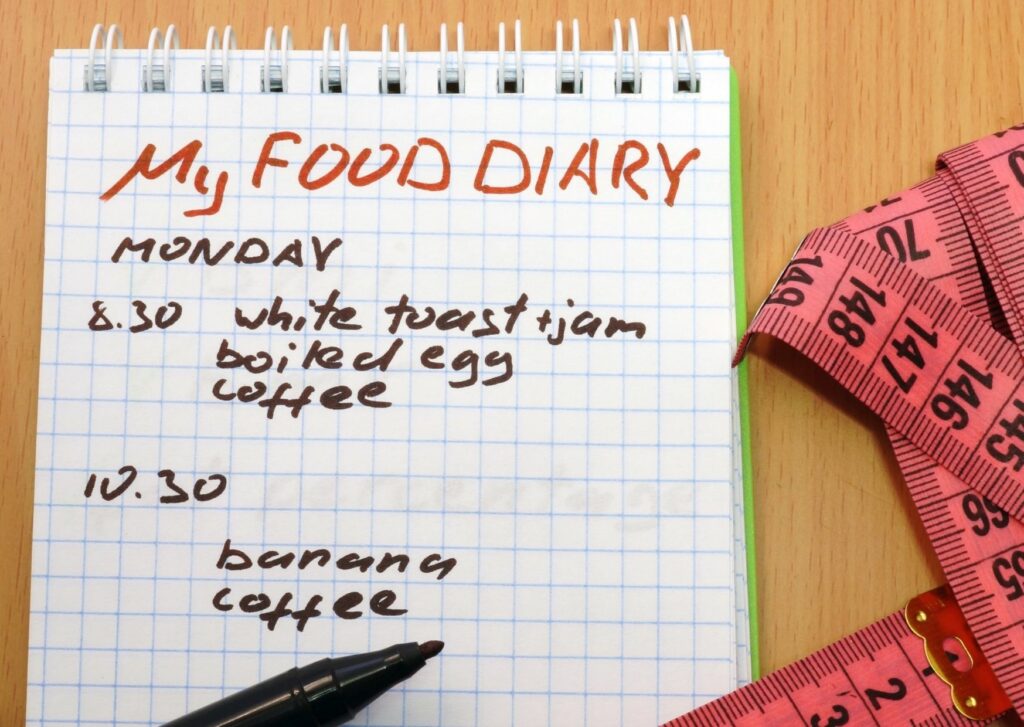
What Is a Food Journal?
A daily food diary is a short-term tool to help you record your food intake and give you – and in some cases your healthcare practitioner – insight into what you eat, how you eat, and when you eat it. It helps you realise what you consume so you can proceed in making changes to your diet to reach your nutritional goals.
The universally used tool is probably one of the first things a nutritionist or dietician or even Google, will ask you to do when you’ve identified a nutritional goal. It’s also a great starting point if you want to take control of your health on your own.
While weight loss is an obvious initiator, there are many other reasons people wish to keep a food journal such as giving up gluten, tracking sugar intake, or just trying to go completely organic.
Not just about food, some journals require additional information such as how you are feeling, when you are eating and where you are eating. These details can be particularly useful based on your condition and what you are trying to achieve. Many pose significant lifestyle changes which can be difficult to keep up, without a food journal.
With a high success rate, it is widely recommended by nutritionists, dieticians and other medical professionals as a means to find resolutions as well as inspire change in daily habits which may be taking a toll on your health.

Why Keep a Food Journal?
A food journal ensures you maintain accountability throughout your journey, as you can look back on the days efforts and spot the trends or areas you may have slipped up. It assists in regulating your meals as you or a healthcare professional can decide what you should and shouldn’t be having and when and where you should be having it. This is done by identifying gaps or consistent patterns, leading you to source alternative options that will reduce these inconsistencies.
A journal significantly increases your chances of reaching your goal. Tracking what you eat at each meal or snack can help you improve your health and intake for two major reasons.
First, you’re accountable to an observant yet nonjudgmental party (the trusty food log). Consistently logging your food helps you consider why and when you’re eating and how hungry or satisfied you feel.
This record-keeping can help you have a more positive relationship with food in general. It draws your attention to food-related pitfalls that may have previously thrown you off-track and gives you the information you need to move forward from a place of honesty.
The second reason is that provides you with a wealth of information about you. You’ll learn more about the foods you enjoy and don’t enjoy, plus the places and situations that you find yourself eating. It can help you notice any negative feelings related to food and identify why you might be eating for reasons that have nothing to do with how hungry you actually felt.
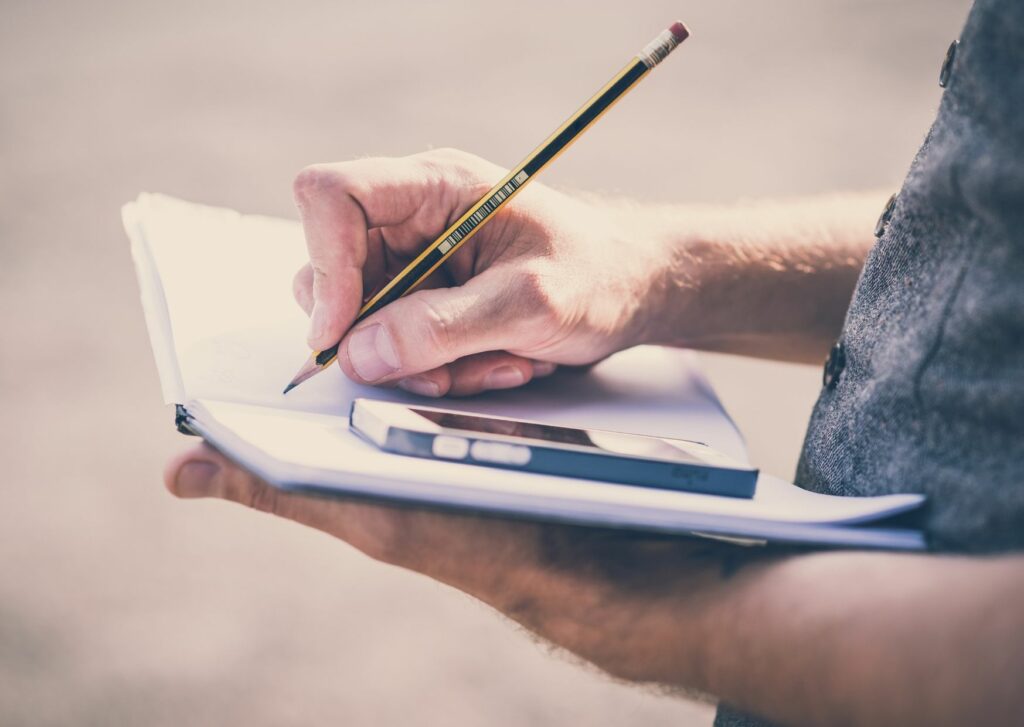
How Do I Use a Food Journal?
Before you start using a food journal, the first thing you need to do is identify your goals. What do you want to achieve? Are you trying to become a healthier version of yourself? Or perhaps your changes are based on moral grounds, financial difficulties or medical necessity.
Once you know this, you’ll remain motivated to persist with the diary as well as make better food choices throughout the day with your goals in mind. You are in control of what you eat, and you know what it is you are trying to achieve. Make the right decisions so you feel good about your journal entries and after consumption.
Once you start logging, it’s imperative to remain as consistent as possible. Set reminders on your phone, excuse yourself from the table, do whatever it takes to log as you consume. If you don’t log your meals as soon as you can, it’s likely you will forget.
This is also important for when you are noting your feelings with the meal. Once you manage to do this for a few days in a row, you’ll become more fluent in the process. The sooner you do it, the more accurate it becomes as you are able to delve beyond what’s on your plate and further into your feelings and the decision-making process.
Be patient with yourself as you adjust to a new habit. If you feel like giving up, think of the bigger picture of what you are trying to achieve. If you skip a day, that’s ok. Pick up where you left of as soon as you remember and know you are not going to be doing this for the rest of your life.
“The habit of persistence is the habit of victory.”
Herbert Kaufman
Be honest. Don’t be ashamed of what you have eaten. This is an exercise to help you achieve your food goals, not to judge your current behaviours. When you are truthful, the process will remain as effective as possible.
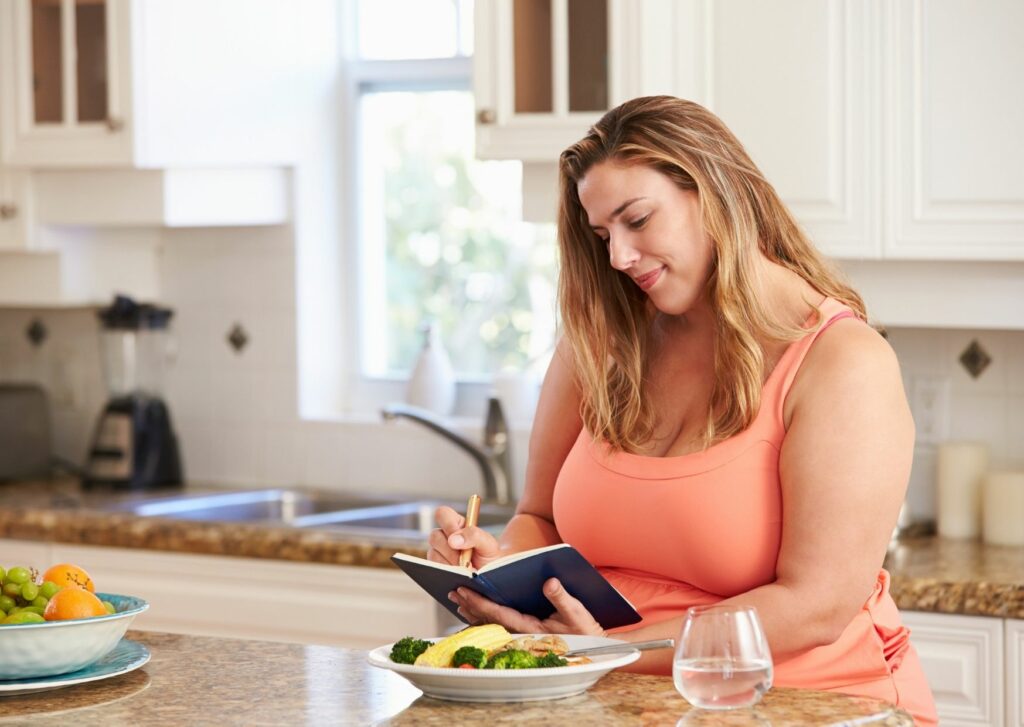
Finding the Right Template
Depending on your individual circumstances, you may choose a pen and paper template or go with an electronic app. While pen and paper has a larger effect – especially if you are a visual person – the reality is, apps are more practical. Who’s going to confidently whip out a clipboard in the middle of a business lunch to record the three pieces of garlic bread they’ve just eaten?
Of course, there are subtle ways of having a hard copy journal such as small diaries and loose sheets of paper which are folded up. With apps, it becomes harder to physically see any patterns in your choices, moods and locations. Tablets or laptops are going to be better as you’ll be handling multiple pages on a small device when you limit use to just a phone.
If you are working with a health professional, they should be able to recommend some options for your specific goal. It comes down to what is going to be best for your condition and lifestyle, so you can keep it consistent and accessible. You also want to be able to read it, and easily identify problem areas and triggers towards undesirable behaviour.
Electronic Options
Lucky for us, it’s 2021 and we’re spoiled for choice when it comes to electronic food journal templates. If you’re going to go with an app, the best one for you will vary based on your goal. There as so many out there with a range of features such as calorie count, positive phrases, mood logs and more.
Here’s a few ideas to get you started and discovering if an app is the way to go for your goals.
My Fitness Pal tracks your weight and calculates a recommended daily calorie intake. The well-designed food diary also contains an exercise log. You’ll be able to log your goals whether they are losing weight, toning up, getting healthy, changing habits or starting a new diet. It’s a great way to track progress and maintain motivation as you start seeing numbers go up or down, based on what you are working towards.
Cron-o-meter is particularly useful for tracking micronutrients like vitamins and minerals. The app also offers exact serving sizes and a strong exercise database. If you are pregnant or lactating, you can select a customized profile based on higher calorie needs. You can also tell Cron-o-meter if you’re following a specific diet, such as the paleo, vegetarian or low-carb and it will change the macronutrient recommendations.
Calorie Counter – MyNetDiary is your personal virtual assistant for weight loss and diet. Like the others, it’s a multitasker, with a food diary, calorie counter, and exercise tracker. Plan your meals in advance, dial in macros, check out nutrition facts, and get insights based on your data each day.
Hard Journals
If you’ve gone for good old-fashioned pen to paper for your journal, there are plenty of options to print or order. Based on your goals, you can search for the one which will suit your needs best. If your moods are affected by what you eat, you’ll need one with more columns for logging how you are feeling when you are having each meal. If you are only seeking to cut sugar, you might want to have a location column, so you are able to track any trends, such as always having access to sugar when you are at home.
Remember with hard journals, counting calories will be difficult. They are great tools for specific goals. Many people with eating disorders find them useful as they are able to identify trends of vulnerability on their sheets and learn how to better manage their lives and avoid these vulnerable moments.
You can also purchase specific food diaries which are small and discreet if having multiple sheets of paper will be hard for you to maintain. Try searching online for more options and ensure there are enough days covered in your selection.

Final Things to Consider
Are you willing to give this your best shot? Do you accept you won’t be perfect from day one? Are you prepared for what you might discover about yourself? Are you willing to change?
There are many reasons you might consider starting a food diary and also many reasons you might consider stopping a food diary. Lack of motivation is a common factor when it becomes a chore or starts to affect your food choices out of guilt. Remember why you are logging your meals, and what you stand to gain if you remain persistent in the process.
In these cases, apps are great at giving motivational feedback, as well as notifications as reminders and updates on your progress. Physical logs however, will enable you to go back as far as you like to review your days side by side. It becomes easier to realise thought any patterns which are linked to your food choices and other undesireable habits which you are able to, or already have changed through your monitoring.
And don’t forget to spot the good things too! If you’re making changes as you discover more about your intake, note these down and be proud of them.
The most important things are being patient, honest accountable and persistent in order to reach your goals, while using the most effective template possible – specifically for you.
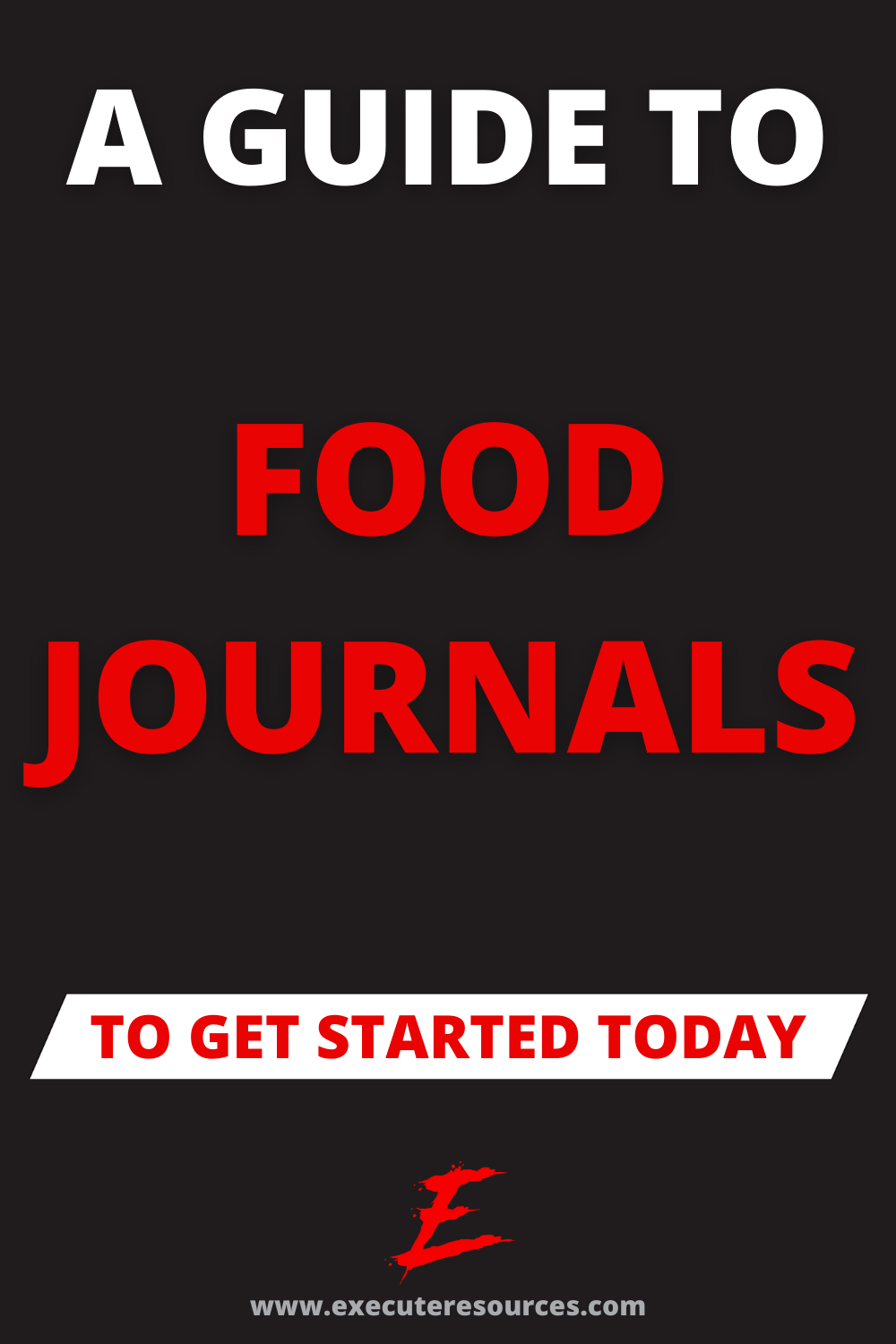
Danni Shafik is a viral content writer for Execute Digital. She began her career as a journalist with a quick transition into writing as she has always told compelling stories throughout childhood and beyond. Danni loves creating viral content with varying topics, angles and audiences and endless opportunities to think outside the box for maximum engagement. Outside of writing, Danni enjoys reading, the beach, live music and exploring the great outdoors.
